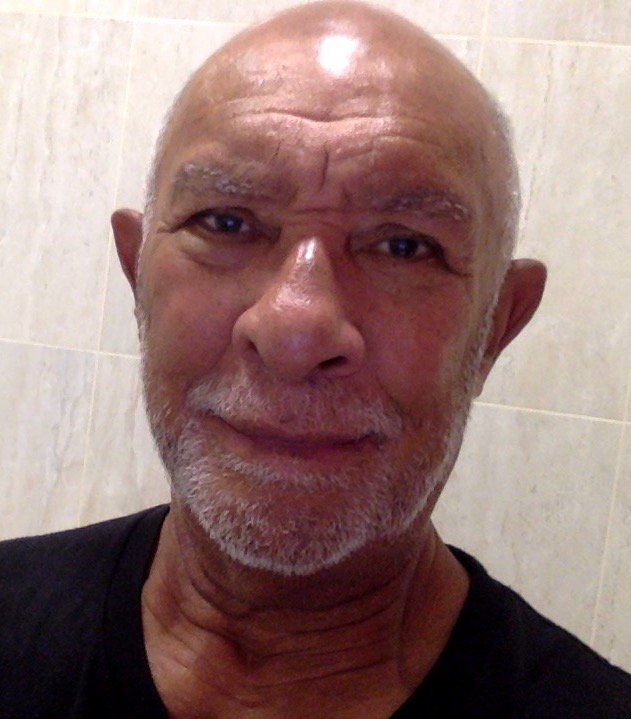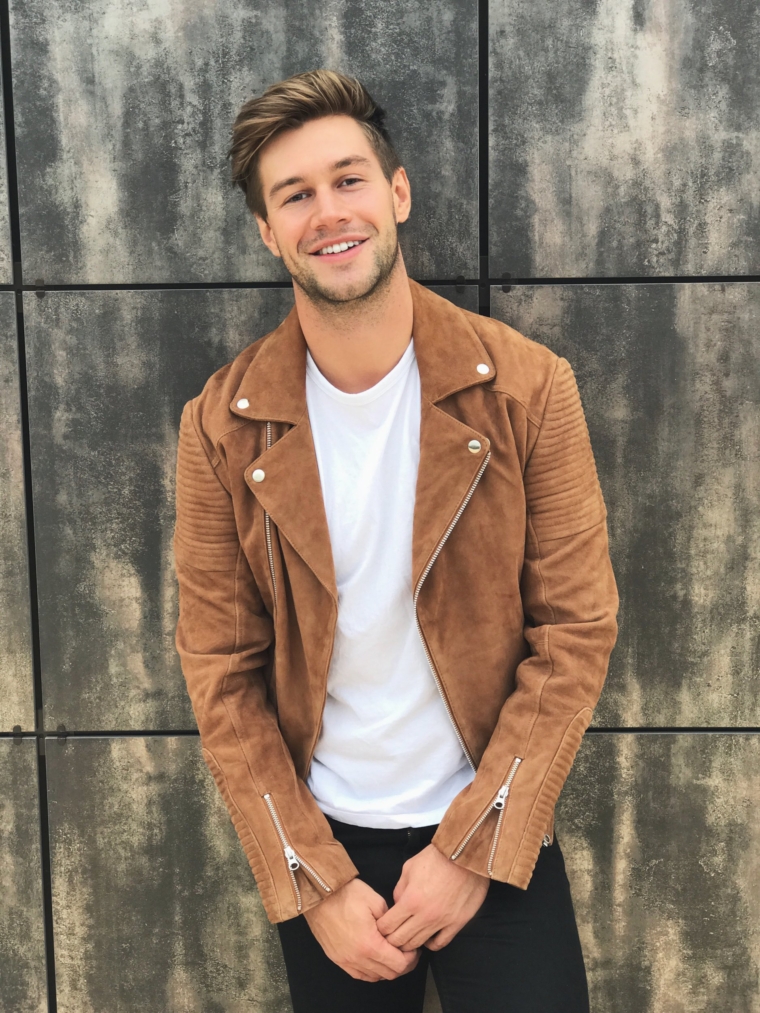The LGBTQ+ community has been highly affected by the coronavirus pandemic, with concerning statistics indicating 69 per cent have suffered depressive symptoms since the outbreak began, and 90 per cent of LGBTQ+ elders experiencing homophobia or transphobia since its beginnings in March.
Opening Doors London, supported by Bank of America, has connected older people struggling with hostility and isolation amid the pandemic with “befrienders.” These are volunteers who have telephoned struggling members of the community to offer their conversation and support. For retired doctor, Ted, and Qmmunity podcast host Alexis, this one-off call turned into an unlikely friendship.
Ted, 83

“I consider myself to be a young oldie. I spend a lot of my time in my own company, looking at exhibitions, going to the cinema, theatre, or just walking around London, but I’m not the best at being sociable. We live in a world that is now unrecognisable for somebody of my age, which makes it a lot more difficult to navigate.
“Because I’m a retired doctor, I had a working idea of what practices would come in place because of the coronavirus outbreak. I felt familiar with the science behind the quarantine element, but I also knew the enormous social effect too. I knew the risk that I could deteriorate into a more depressed state, which was even more frightening.
“For our generation, being gay was completely different to the experiences of people today. In Alexis’ generation and even the one before his, people don’t understand very clearly what it was like to be ostracised, and how dangerous it was for us growing up. It’s important that we speak out and tell the world of our existence, because our needs are not the same as the younger people who accept everything as being normal.

“When I was a young gay man, it was like having a disease with scars that don’t show. You always had to be different, and hide the fact you went to Soho. It was a clandestine place, one where people hid in the shadows. I was practising medicine by day, and living a different life at night. I wouldn’t just put on different clothes, but a whole different persona, and return to work bleary eyed and get back to my profession.
“Sadly, those prejudices don’t stop as we age. I belong to an organisation called Tonic Living, which arranges housing for older LGBT people so we can live together as a kind of community rather than being as isolated as I am, which is all too common among older LGBTQ people. Some of us have to go into general care, where there is a risk we might have to go back into the closet to evade prejudice from staff and other residents. I think to move out of my flat, and bond with other LGBTQ+ elders would be really lovely.

“I’m not extremely good at one-to-one interaction with total strangers, so being matched with Alexis was quite a lesson for me. I had no previous knowledge of the service, and over the last three months or so it has worked out to be a solid, kind friendship which wouldn’t have happened in other circumstances. Alexis’ personality shone through from the first call. What was once quite scary is now something I’m so glad to be part of. It’s opened up a whole new vista for me.”
Alexis, 31

“I first found out about telefriending when I was handed a flyer at Pride last year, and I decided I wanted to do more volunteering within the LGBTQ+ community. I think that it’s important to reach out our queer elders, especially when we wouldn’t have the freedoms, rights, privileges and protections that we do without their hard work.
“I grew up under Section 28, and that’s nothing compared to what the generations ahead have gone had to experience. It’s appalling how our general society treats old people. It feels at times like LGBTQ+ people have been forgotten by the rest of their generation as well, because those “old views” of homophobia haven’t gone away.
“The older generation’s story isn’t just one of tragedy and pain, however. Yes, that was there. But they’re also incredibly fun. They did amazing things, they did bawdy things, they created a culture. Every generation thinks they invented partying and sex, and that every generation ahead of us were these old stuffy fruits, and it’s just not true.

“When we were matched by the charity, we were meant to talk on the phone for fifteen minutes to see if we got on. Our first call ended up being an hour and a half long. We had a wide range of things in common. I had just come back from South Africa, and Ted is from South Africa. Our favourite musical composer is Stephen Sondheim, and all of these common interests came to light. We joke that we were cast as the difficult ones who couldn’t find a decent match, then we found each other.
“Ted and I chat for an hour every week. It’s a really nice enjoyable routine to the week, particularly during the heaviest bit of lockdown, where there was no real delineation between the weekend and the week, because you were just in your house all the time.
“Ted has also given me some great advice. I explained to him that I was thinking of going back to university, and said that I felt like “I was really old.” But Ted jumped in and gave me another perspective, and made me feel like I have a whole life ahead of me.

“For a lot of LGBTQ+ people, it’s hard to access your roots because queer history is not taught in schools. If you don’t know your past, your community’s history and where you come from you, you’re kind of rootless. Whatever community you’re born into, whether that’s a religious community or a sporting community, you’re told the story and history of your ancestors. We need to work harder to have that where it’s been erased.
“For everyone feeling disaffected at the state of the world, you can do something like this every week to try and make a nicer world. I would really, really encourage people to get involved.”

